Three takeaways from research on student well-being in the PYP
 Schooladvisor Team
Schooladvisor TeamDoes the Primary Years Programme (PYP) have an impact on social-emotional outcomes? New evidence suggests that the PYP supports student well-being, teacher engagement and positive school climates. Read on to see three key findings from the new study.
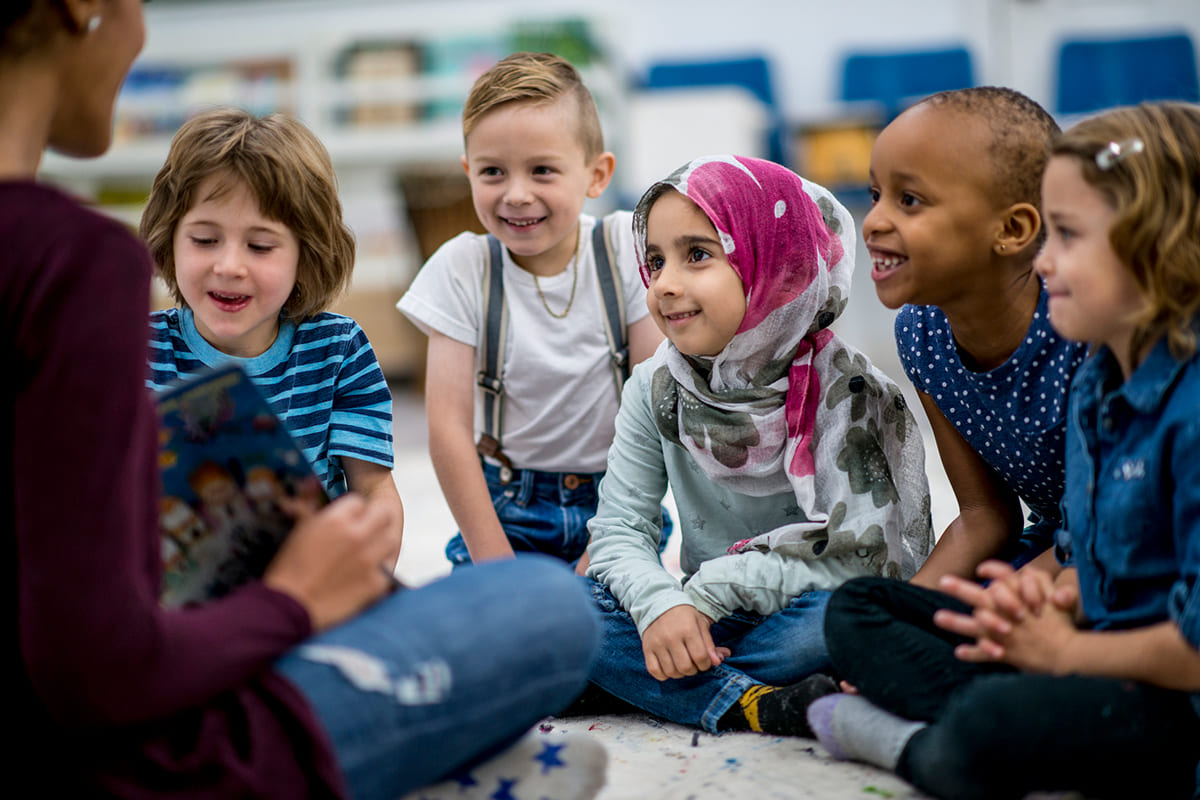
The study
The Australian Council for Educational Research (ACER) conducted a study to examine student well-being in Primary Years Programme (PYP) schools. Researchers were also interested to learn if elements of the PYP framework support positive student and school outcomes. The study involved analysis of data from PYP and similar non-PYP schools and surveys with PYP teachers and students from 56 schools across Australia.
1. PYP students show higher levels of well-being
One of the key findings from the study was that PYP students demonstrated consistently higher levels of well-being, compared with similar non-PYP students. The data further suggested that PYP students have a moderate advantage equivalent to three months’ additional development on aspects of well-being compared to their non-PYP peers.
An important element of the well-being of young people is the extent to which they experience both negative emotions and behaviours (such as stress, anger and rule-breaking behaviour) and positive emotions and behaviours (such as positive self-identity, happiness and getting along with others). As such, the survey measured positive and negative elements of students’ well-being. Figure 1 shows that PYP students’ responses were more positive (for positive items) and less negative (for negative items) for each feeling or behavior, compared with non-PYP students.
Figure 1. Students’ views about overall well-being: Feelings and behaviors
*Negatively-worded items reverse scored prior to Rasch modelling
[Note: The below figures represent a selection of the results. To see the full array of responses, please refer to the image, study summary or full report.]
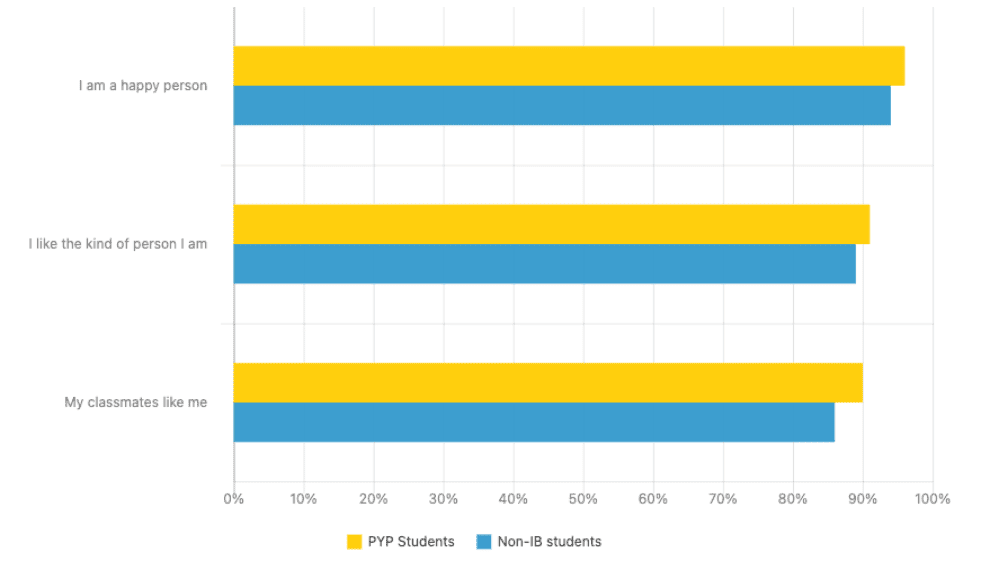
Agreement with negative Items
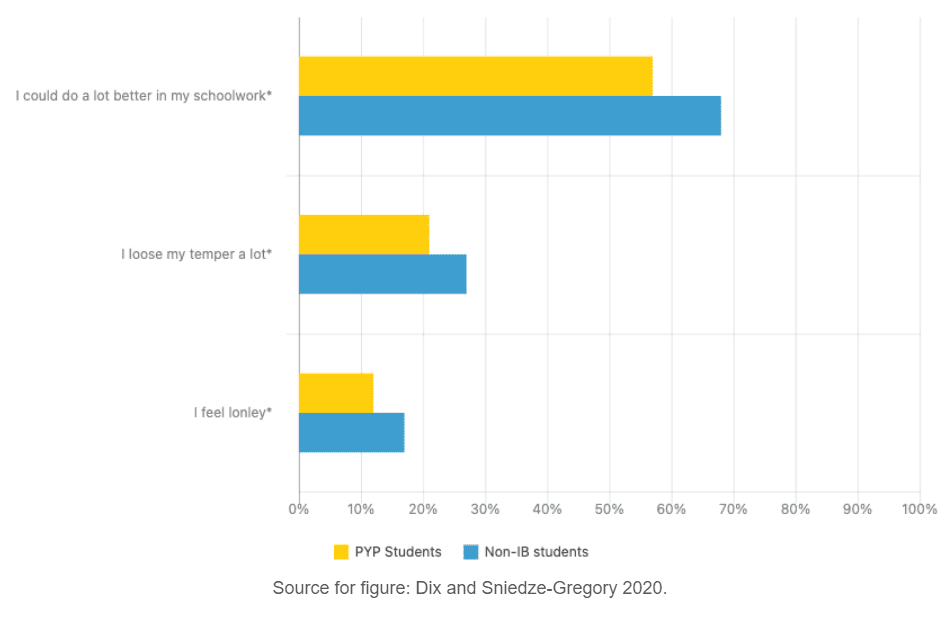
2. Evidence suggests the PYP positively influences student well-being
Researchers in this study developed a new tool—the PYP Index—to assess the potential impact of the PYP on student well-being and to make comparisons across schools. The PYP index measured how well schools were implementing the PYP, grouping schools from low to high levels of implementation.[2]
Students in high implementing PYP schools were more likely to have developed social-emotional learning skills and improved well-being outcomes, compared with students from low-implementing PYP schools. Additionally, PYP schools with strong implementation consistently showed a more positive school climate and higher levels of teacher engagement and student participation, due to the PYP. Figure 2 illustrates differences between low and high implementing PYP schools for student and classroom activities as well as student outcomes.
Figure 2. PYP implementation quality independent of socio-economic status
[Note: The below figures represent a selection of the results. To see the full array of responses, please refer to the image, study summary or full report.]
School activities: Mean responses on school climate
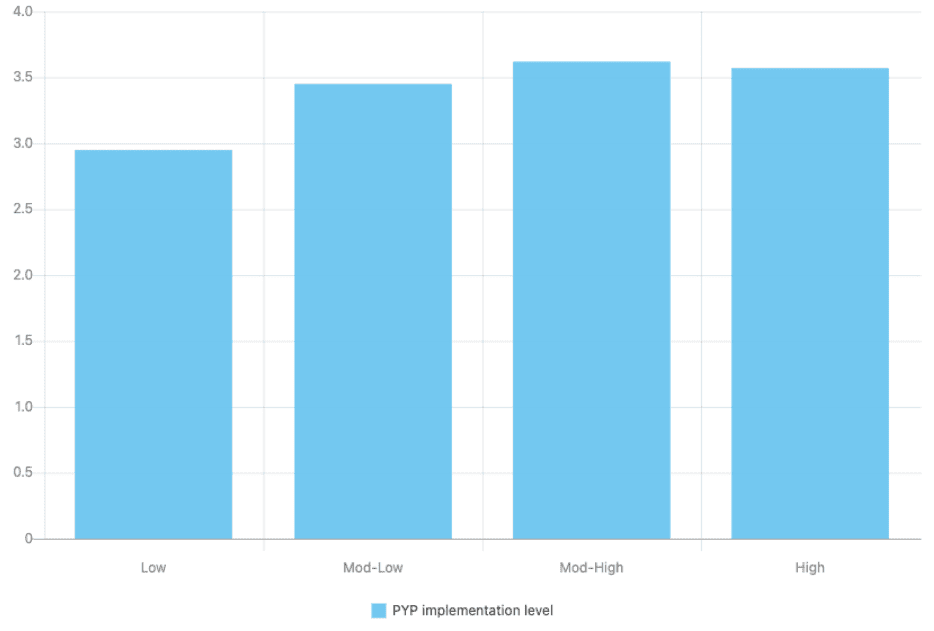
Classroom activities: Mean responses on approaches to learning
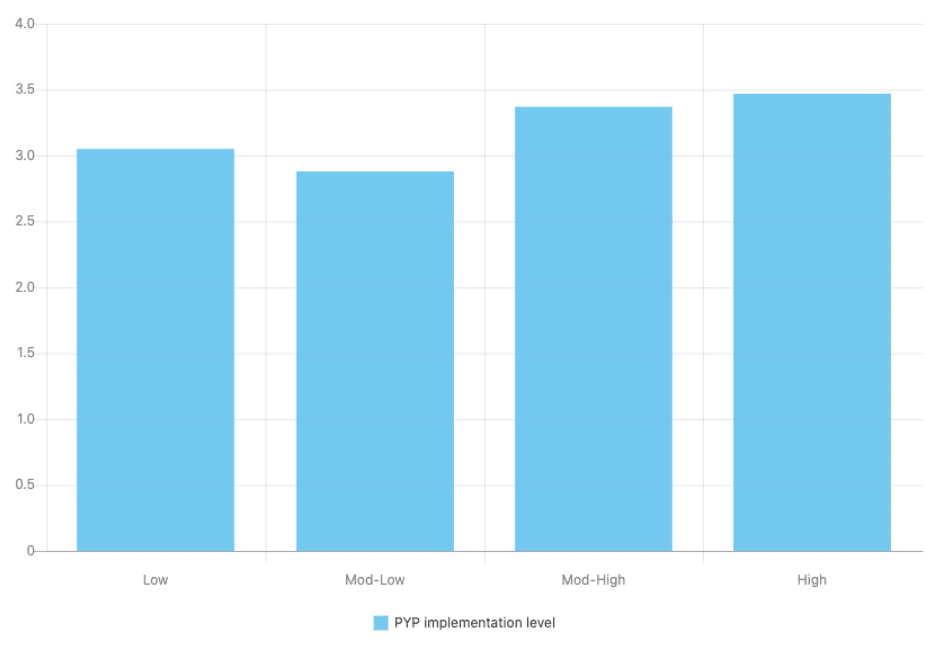
Student outcomes: Mean responses on Student well-being
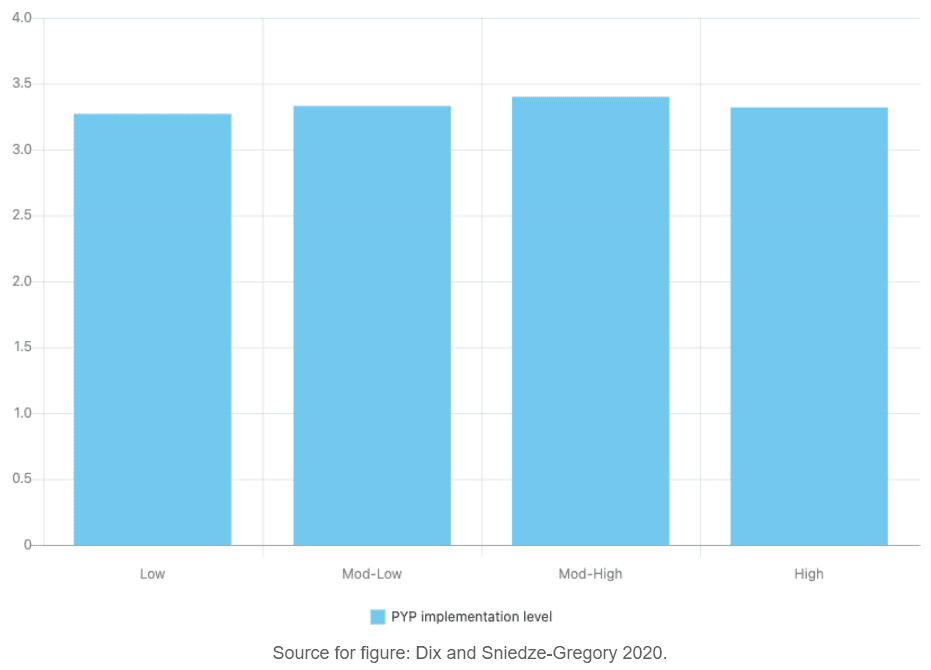
3. Elements of the PYP curriculum foster well-being
The study found that PYP curriculum and programmatic elements include many activities and practices that promote student wellness. In particular, the IB learner profile and approaches to learning helped students to develop skills and practices that supported their well-being.
Overall, this study offers substantial evidence that the PYP encourages student well-being and fosters more positive school climates, above and beyond the impact of other well-being initiatives offered in schools.
As a vibrant Early Years to Grade 12 international school, IGB International School (IGBIS) is an International Baccalaureate (IB) World School, IGBIS is the only school in Malaysia authorised to offer the full continuum of IB programmes: the Primary Years Programme (PYP), the Middle Years Programme (MYP), the Diploma Programme (DP), and the Career-related Programme.
For more information about IGBIS and the IB programmes we offer, feel free to visit our website. For any further inquiries, you may contact us at +603 6145 4688 or email us at enquiries@igbis.edu.my. Also, follow our Facebook and Instagram pages to stay updated on our activities and on-goings at or related to our school.
.jpeg)
